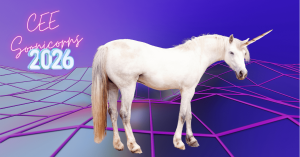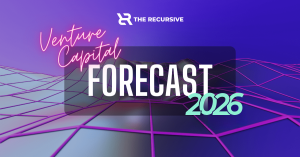As artificial intelligence accelerates the pace at which new tech products can be developed and tested, a growing number of European startups are bypassing traditional venture stages and leaping straight into major rounds. OpenOcean, the early-stage venture capital firm known for its deep technical heritage, sees this as a moment of opportunity — and responsibility.
Startups are skipping steps, OpenOcean observes
Across Europe’s leading tech hubs — from London to Paris, Berlin to Helsinki — early-stage startups are raising increasingly large rounds, often before hitting typical Series A milestones. It’s a shift driven by technical founders in fast-moving sectors like AI and data infrastructure.
“We’re seeing this trend most clearly in technical sectors like AI, and especially in ecosystems that value capital efficiency like Paris, London, Berlin, and across the Nordics,” says Patrik Backman, General Partner at OpenOcean.
Startups like Mistral AI and Stability AI exemplify the new pace. “In both these cases, high-conviction in both the founding teams and the technology have created conditions where startups can leapfrog the traditional funding ladder,” says Tom Henriksson, General Partner at OpenOcean.
This shift presents investors with a clear dilemma: take on more risk by backing early, or face steep valuations and fierce competition by entering later.
“We believe the best returns come from backing exceptional teams early, before valuations spike,” says Backman. “While many mega-funds focus on later-stage deals with increasingly compressed outcomes, we focus on building value at the early stages.”
For OpenOcean, that value goes far beyond capital alone.
“A technical foundation is vital to supporting founders with strategic and operational input needed to turn early traction into lasting category leadership, much more valuable than just capital,” Henriksson adds.
Where acceleration works — and where it doesn’t
While sectors like AI and software are proving ripe for acceleration, OpenOcean stresses that not every industry can follow the same playbook.
“Currently, the acceleration model is best suited to sectors where teams can build quickly, iterate fast, and start generating commercial value early,” says Backman.
Open-source models and scalable infrastructure have dramatically lowered the cost of building, making it easier for teams to bootstrap early versions and raise larger rounds based on product-market traction.
“AI startups secured over $7.6 billion in global seed funding last year alone, with some of those rounds landing well beyond Series A territory in size in the $100M+ range, meaning companies are effectively doing their Series A at seed,” Henriksson points out.
However, in capital-intensive fields like biotech, clean energy, semiconductors or aerospace, the traditional staged funding model still applies.
“These teams will typically need significant capital for prototypes, manufacturing or regulatory approval,” says Backman. “In those cases, early-stage capital remains critical with early VC often being the only lifeline to survive until a product is ready.”
OpenOcean raises its fourth fund and closed €100M
Amid this shifting landscape, OpenOcean is reaffirming its early-stage strategy with a new fund focused on AI, data infrastructure, and enterprise software.
“The core philosophy behind our fourth fund is simple: data is the engine driving the next wave of AI innovation, strengthening product value and business defensibility,” says Henriksson.
Founded in 2009 by MySQL creator Michael Widenius, alongside Patrik Backman and Ralf Wahlsten, the London- and Helsinki-based firm has long focused on backing technically driven B2B software startups. With roots in foundational technologies like MySQL and MariaDB, the team brings deep domain experience to early-stage investing.
Now, with its fourth fund, OpenOcean is doubling down on its original thesis: back technical teams building data-centric products that are as usable as they are defensible. The firm has closed €100M so far, with a final €130M close expected in the first half of 2025.
“This fund will back companies building AI, data and software solutions that are both technical at their core and user-friendly,” Backman explains. “We look for founding teams with deep domain expertise and solutions with the early signs of product-market fit, typically investing at Seed and Series A up to €6M in the initial financing round.”
The fund has received increased backing from Isomer Capital and KRR Fund of Funds, along with continued support from returning LPs like the European Investment Fund and ELO Pension Company.
Last year, OpenOcean led the Series A round of Polish startup Authologic, which streamlines identity verification by integrating digital e-IDs — a move that makes KYC processes faster, easier, and more secure. Other CEE companies in their portfolio are Booksy (Poland), Bitrise (Hungary), Lattice Flow (Bulgaria).
Betting on Europe’s edge
Despite the massive capital flows driving US tech, OpenOcean believes Europe has an edge that goes beyond money — grounded in technical talent, research excellence, and industrial foundations.
“The continent may not match Silicon Valley’s spending power, where the top four tech giants are on track to invest over $320 billion in AI this year, but it can still lead by leaning on its talent, research capabilities and industrial foundations,” says Henriksson.
While OpenOcean maintains a Pan-European investment focus, the firm also retains flexibility to back standout global teams — including its recent investment in Dreamfold, a North American protein design AI startup.
“We prioritise supporting global category leaders from strong technical roots and retain some flexibility to invest across geographies to do this,” Henriksson says.
Ultimately, OpenOcean sees its role as helping Europe’s most promising technical teams scale — not just across borders, but into global leadership.
“Major opportunity lies in backing these startups in Europe’s innovation ecosystem at an early stage and then helping it scale to the global stage,” Backman concludes.








